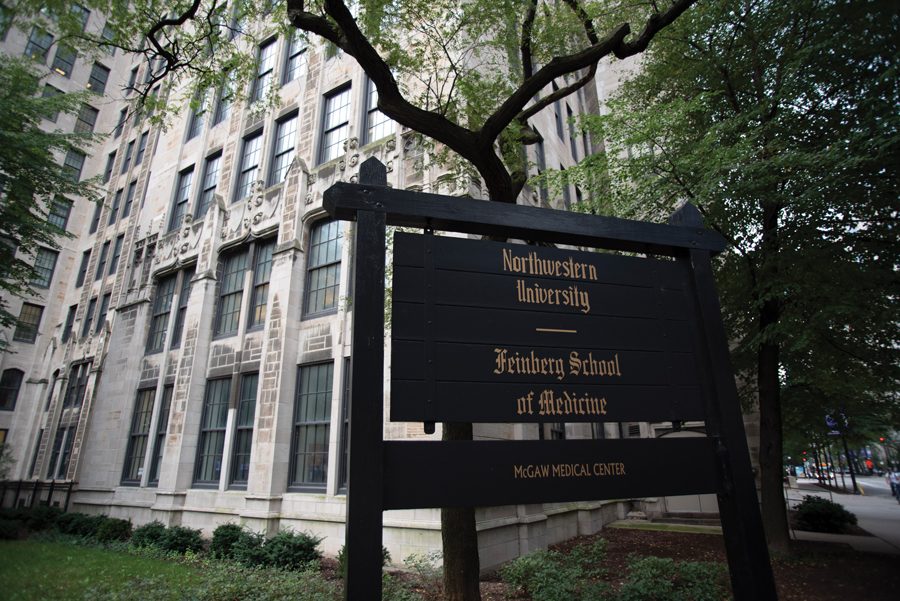Northwestern Medicine opens Polsky Urologic Cancer Institute
Daily file photo by Colin Boyle
Feinberg School of Medicine. The institute is led by Dr. Edward Schaeffer, the chair of the Urology department at Feinberg
January 28, 2019
Northwestern’s Robert H. Lurie Comprehensive Cancer Center announced on Jan. 7 the opening of the Polsky Urologic Cancer Institute, dedicated to the research and care of urologic cancers.
The Institute was funded by a $10 million donation from Michael Polsky, the founder and CEO of clean energy firm Invenergy. Polsky’s name is also attached to the University of Chicago’s Polsky Center for Entrepreneurship and Innovation, to which he has contributed $50 million.
The Institute will treat urologic or genitourinary cancers, which include bladder, kidney, prostate and testicular cancer — each of which can create unique complications. Led by Dr. Edward Schaeffer, the chair of the Urology department in the Feinberg School of Medicine, the Institute brings together an interdisciplinary group of urologists, medical and radiation oncologists, radiologists and pathologists to target these cancers. It will also provide patients with access to genetic counselors and nurse practitioners.
Specialists at the Institute are already frequent collaborators under the larger umbrella of the Lurie Cancer Center, said Dr. Maha Hussain, the deputy director of the Center. She and Schaeffer emphasized that the Institute is an “optimization” of ongoing operations through the creation of a urologic cancer-focused group as well as a new wellspring of funding.
“It doesn’t change what we do. … The Polsky Institute is one of the umbrellas that we are working in,” Hussain said. “Our mission is to make things better for humans, and that’s going to happen through excellence in patient care, research and services. [The Institute] brings us even more together, and it has the resources which enhance those different aspects.”
The team expects to move into a planned “collaborative space” by September, Hussain said.
Students who work with doctors and researchers involved in the Institute may collaborate on internal projects, Hussain added. Schaeffer said the opening of the Institute will improve the educational experiences of students who are headed for careers in clinical urology and urologic oncology.
“If we make our enterprise that much better of a place for our patients, and more patients come with complex disease states, the students will benefit significantly,” Schaeffer said.
Email: [email protected]
Twitter: @avi_vrghs
Related Stories:
– Feinberg professor finds one in 10 Americans have food allergies
– In Focus: As Feinberg surpasses initial ‘We Will’ fundraising goal, progress on tuition-free initiative lags behind


